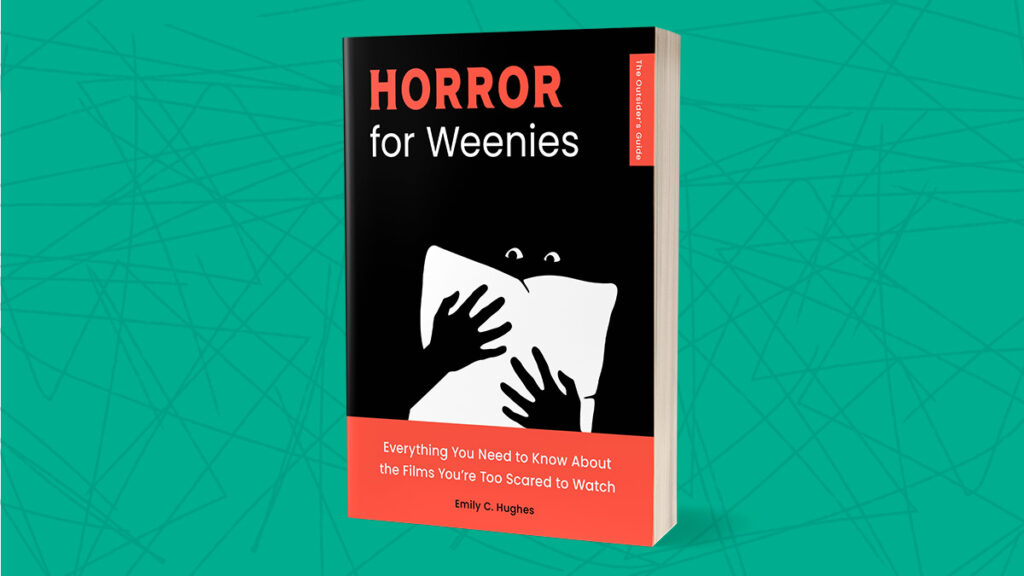HORRORTOR: The Horrorstor Blog Tour, Plus Five Forgotten Horror Writers You Need to Discover
Greeting horror fans! The blog tour for Grady Hendrix's Horrorstor has begun! Launching yesterday with The Book Smugglers and running through the end of the month, you can find Grady on a number of websites celebrating the release of his awesome novel.
The tour continues today with this post from Grady, about horror novelists you need to discover.
Horror never grows stale, and one of the great things about it is that there are always writers you’ve never heard of, just lurking in the shadows, waiting for you to stumble over them. There are so many forgotten horror writers that someone should write a book about them, although it would probably be promptly and appropriately forgotten. Here are a handful who stand out to me.
Vernon Lee: Real name Violet Paget. She’s the closest thing English literature has to Henry James, and her ghost stories traffic in his same understated delicacy of emotion. By all accounts a total genius, Paget was publishing articles in German at thirteen, became an authority on the Renaissance, collected Italian folktales, developed the field of aesthetics, wrote a multi-volume work on the psychology of music, wore men’s clothing, was androgynous years before David Bowie made it cool, and hung out with John Singer Sargent, Robert Browning, and Oscar Wilde.
She knew Henry James and he hated her, yet her novella “The Phantom Lover” is an inverted mirror image of his “Turn of the Screw” published 12 years before. “Turn” is about a dull governess stuck in the countryside and being driven bonkers by two little kids. “Phantom” is about three sophisticated bohemians — a portrait painter, a country lord, and his fast-lane wife — haunted by a dead poet, or maybe just all going quietly insane together. Her main characters are always over-educated, always too sophisticated, and they always come to a bad end, as in “A Wicked Voice” in which a snob in Venice goes mad after being haunted by the beautiful, baroque, too-ripe voice of a long-dead singer. It’s a little how one feels after reading Vernon Lee.
Graham Masterton: The crack cocaine of horror writers, Masterton is not the powerhouse today that he was in the Eighties when millions of innocent readers were huffing his insanity fumes directly into their eyeballs, but he still packs a punch. The Takashi Miike of horror writing, Masterton started as a newspaper reporter when he was 17, edited Penthouse, then, at the tender age of 25, wrote the sex instruction book, Acts of Love,. Since then he’s authored about 29 more love manuals, including the iconic How To Drive Your Man Wild in Bed (2 million copies sold).
In 1975 he took a break from instructing couples in the gentle art of nookie to write The Manitou, a horror novel about a reincarnated Native American medicine man growing out of a boil on a woman’s neck, born again to take revenge on the White Man for his crimes. It is, needless to say, batshit crazy. You can practically hear the reviewers at Kirkus being carted off to the loony bin after being forced to write sentences like, “Masterton’s newest…culminates in a soul-draining depiction of a giant mutilating the penis of a renowned psychic.” Masterton isn’t just a Stephen King clone (although he did write his own version of The Stand, called Famine, although his book features far more graphic shoot-outs and gruesome riots) and his books have their own flavor, most notably Feast in which a restaurant critic takes on a cult of self-cannibalizing French gourmets.
Michael McDowell: Best known for writing the screenplays for Beetlejuice and The Nightmare Before Christmas, Michael McDowell was also the author of numerous paperback originals penned in the Eighties about everything from men marrying amphibian women to vengeance-seeking lesbian wrestlers wearing opium-soaked golden fingernails. His two greatest achievements remain his first novel, The Amulet, and his six-volume Blackwater series. Both are set in the deep South and they feel like the distilled essence of Southern gothic, only sexier, bloodier, and not nearly as coy as you might expect from a nice Southern boy. Think of them as grotesque variations on Fried Green Tomatoes at the Whistlestop Cafe, only with more people feeding themselves into grain threshers.
In The Amulet, a bitter mama of a boy wounded hideously in Vietnam wreaks her vengenace on the entire town with an amulet that causes people to go bonkers, toss babies into washing machines, and get eaten by hogs. The Blackwater series, on the other hand, is an atmosphere-choked gothic snarl of incest and madness and filthy floods about a family who marries into a race of amphibians from one of H.P. Lovecraft’s worst nightmares. Both deserve far more attention.
W.F. Harvey: An author who should be as well-known as Poe, Harvey is one of America’s great forgotten short story writers, a man who wrote dozens of stories before he died in 1937, each one about 3,000 words long or less, and each a marvel of economical precision. From “August Heat,” a thousand-word creeper about two artists who have a surreal encounter, to “The Dabblers” about a Satanic cult that erupts spontaneously at boy’s schools, to “The Tool” about a a man who loses a day of his life and may have done something horrible in those forgotten hours, to “Mrs. Ormerod” in which a lazy housekeeper on the brink of losing her job arranges for her employer to run over her son so that he’s too guilty to fire her, Harvey’s stories are straight whiskey, no chaser. Just pure liquor that burns all the way down.
Toni Morrison: Hardly a forgotten writer, but definitely a forgotten horror writer, Toni Morrison is the genre’s best-kept secret and her 1987 novel, Beloved, should be to horror what Margaret Atwood’s The Handmaid’s Tale is to science fiction: a much-loved book that can lure unsuspecting readers into our coven. Because have no doubt, Beloved is nothing more or less than a pure-bred, all-American ghost story, and not a ghost story as some kind of fancy literary metaphor, but a pure ghost story about a dead baby come back to haunt the mother who murdered her.
Set against the horrific backdrop of slavery in 19th century America, it’s a double whammy of horror as a woman wracked with guilt becomes addicted to the destructive ghost of her dead child surrounded by a gallery of people all maimed, both physically and mentally, by the horrors of slavery. Whenever a person who says they don’t read horror closes the covers of Beloved they should immediately be confronted by one of us, crawling through their windows, offering them a copy of Shirley Jackson’s Haunting of Hill House or Sarah Waters’s The Little Stranger or Ray Bradbury’s Something Wicked This Way Comes.
Grady Hendrix
Grady Hendrix is an award-winning novelist and screenwriter living in New York City. He is the author of several New York Times bestsellers including How to Sell a Haunted House, The Final Girl Support Group, The Southern Book Club’s Guide to Slaying Vampires and many more. His books have been translated into more than twenty languages and sold over two million copies. He also writes non-fiction and his history of the horror paperback boom of the seventies and eighties, Paperbacks from Hell, won the Stoker Award for Outstanding Achievement in Nonfiction.



